Green Diplomacy in Nepal: India and Germany Lead by Example
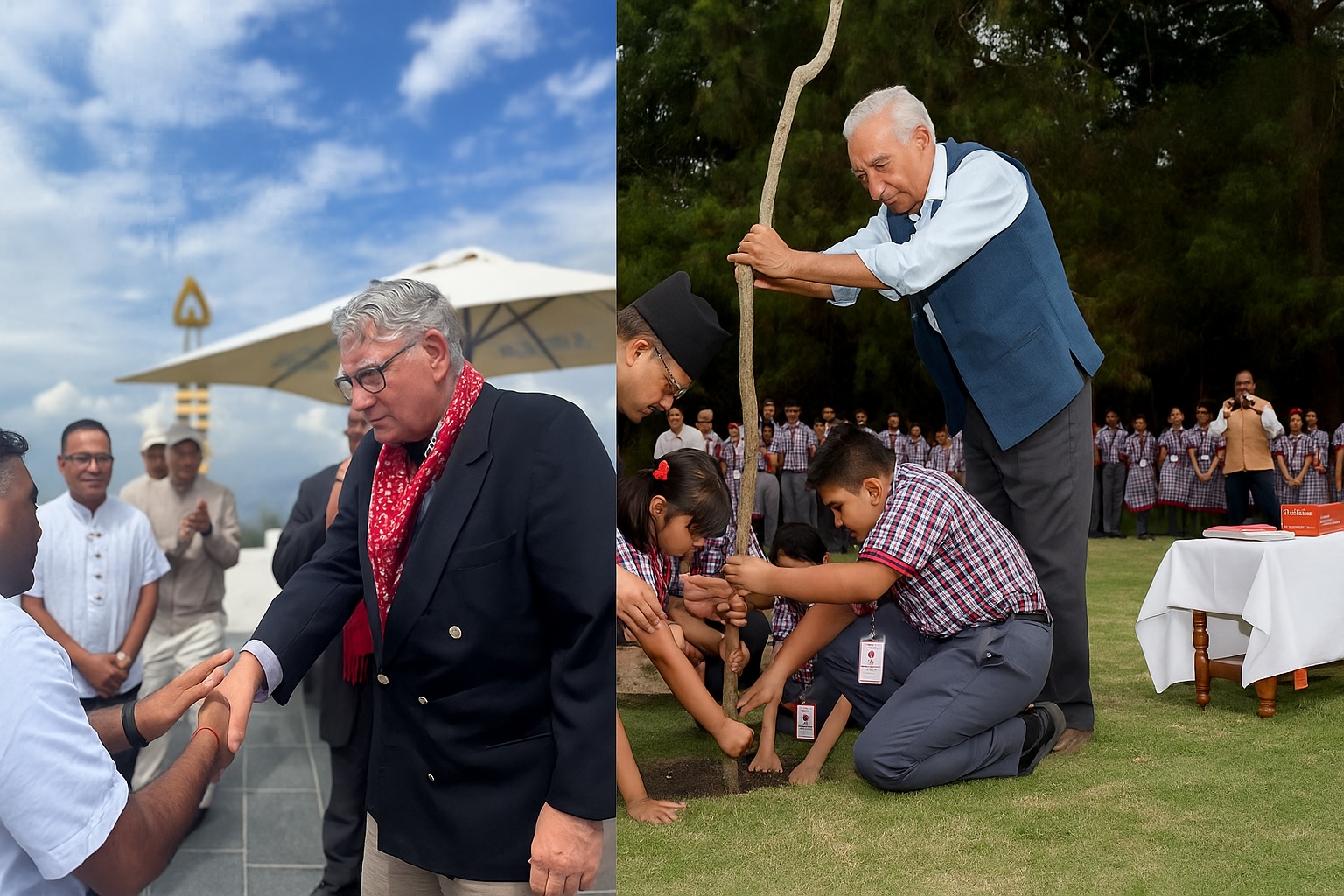
Kathmandu, June 5, 2025 — Two powerful gestures of environmental solidarity unfolded in Nepal as the embassies of India and Germany marked World Environment Day 2025 with strikingly different but equally impactful initiatives, blending diplomacy with tangible actions on the ground.
At the Indian Embassy in Kathmandu, the theme “Beat Plastic Pollution” served as more than a slogan—it became a mission. The event drew together dignitaries, environmental advocates, and students in a shared pledge to heal the planet. Among them was Nepal’s Minister of Forest and Environment, Hon’ble Ain Bahadur Shahi Thakuri, who joined Indian Ambassador Naveen Srivastava in planting saplings inside the embassy premises. Students from Kendriya Vidyalaya Kathmandu participated with hopeful energy, symbolizing intergenerational responsibility for climate action.
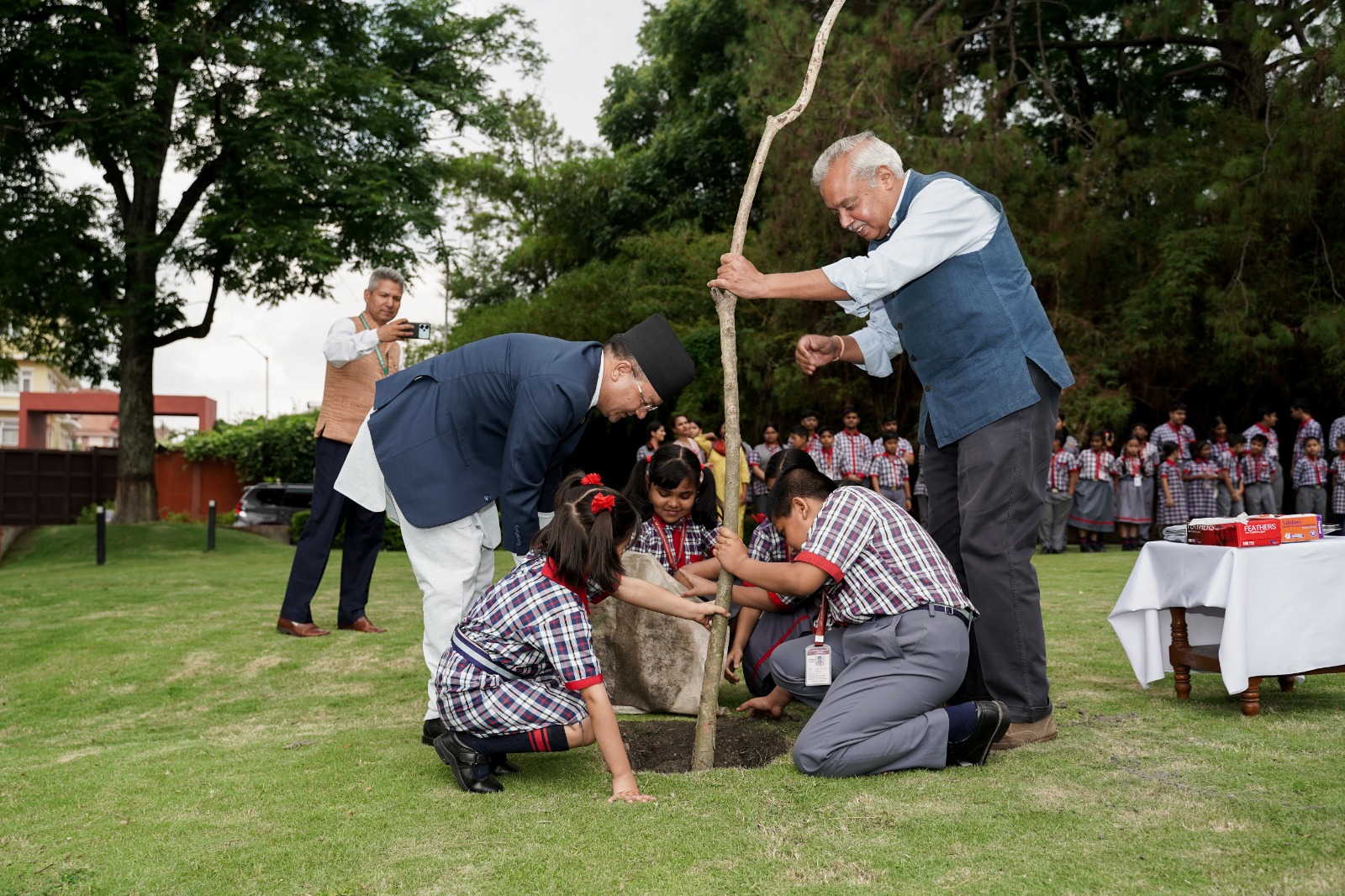
“This small act of planting a tree carries the weight of global urgency,” Minister Thakuri remarked. “Environmental diplomacy must move beyond dialogue—it must bloom in action.”
The Indian Embassy’s focus on reducing plastic waste resonated in a region grappling with growing landfills, river pollution, and microplastics in its fragile Himalayan ecosystem. The embassy emphasized India’s commitment to sustainable living and regional cooperation in fighting environmental degradation.
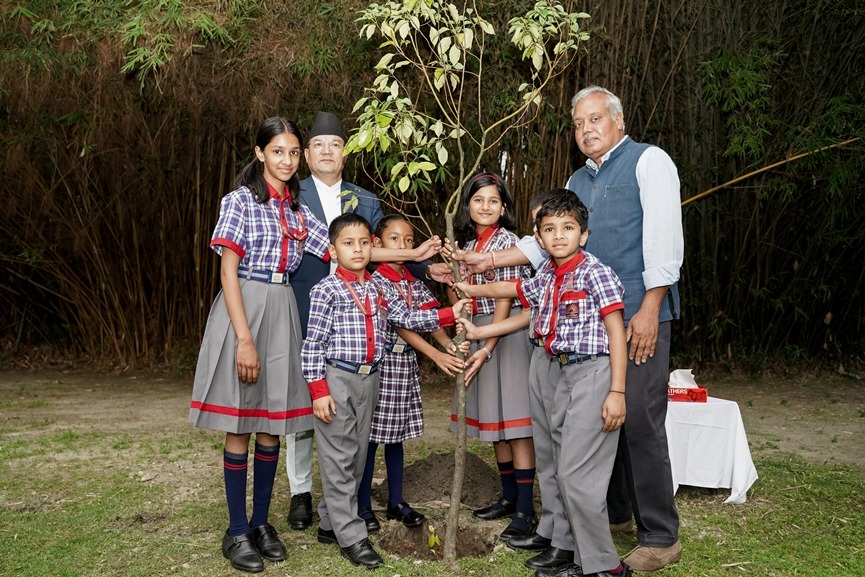
In contrast—but equally grounded in meaningful impact—the German Embassy marked the occasion by addressing one of Nepal’s most urgent environmental needs: access to clean water.
At a launch event held in Dhulikhel, Dr. Michael Koch, Chargé d’Affaires of the German Embassy, inaugurated the rehabilitation of the Dhulikhel Drinking Water Project. Originally built with German assistance in the 1990s, the infrastructure had been crippled by the devastating floods of September 2024. Now, with a renewed commitment of €100,000 from the German government through GIZ Nepal, the project aims to reconstruct damaged pipelines and water treatment units.
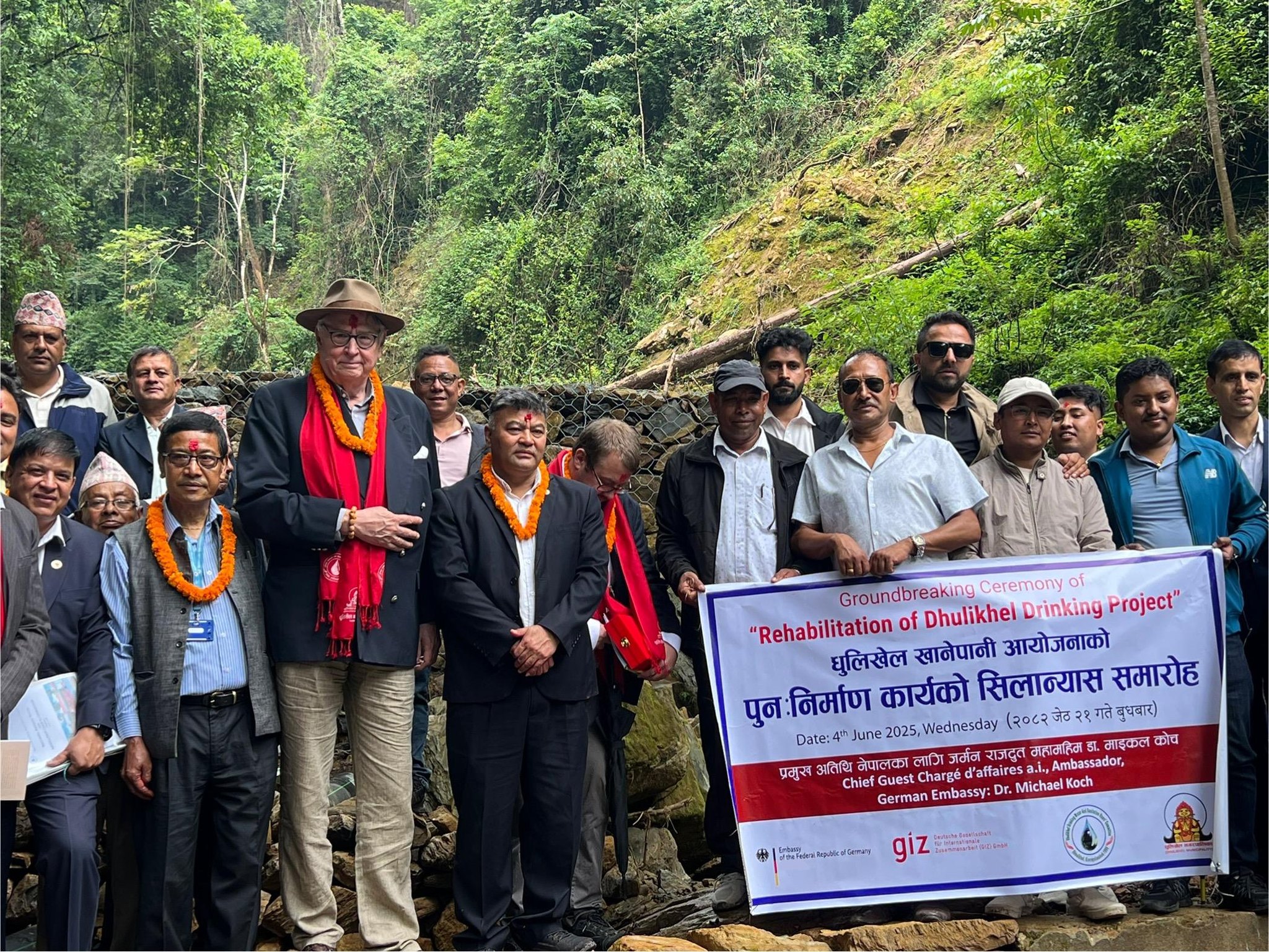
“This is more than rebuilding infrastructure,” Dr. Koch noted. “It’s about restoring dignity, health, and resilience to a community that has shown exemplary stewardship of their natural resources.”
The uniqueness of the Dhulikhel initiative lies in its local governance model: since its inception, a committee of elected users has independently managed the entire system. This structure, rare in regional development projects, provides a replicable blueprint for sustainable, community-driven resource management. Once operational, the project will ensure safe drinking water for over 35,000 residents—a lifeline in a country where water scarcity and contamination remain pressing issues.
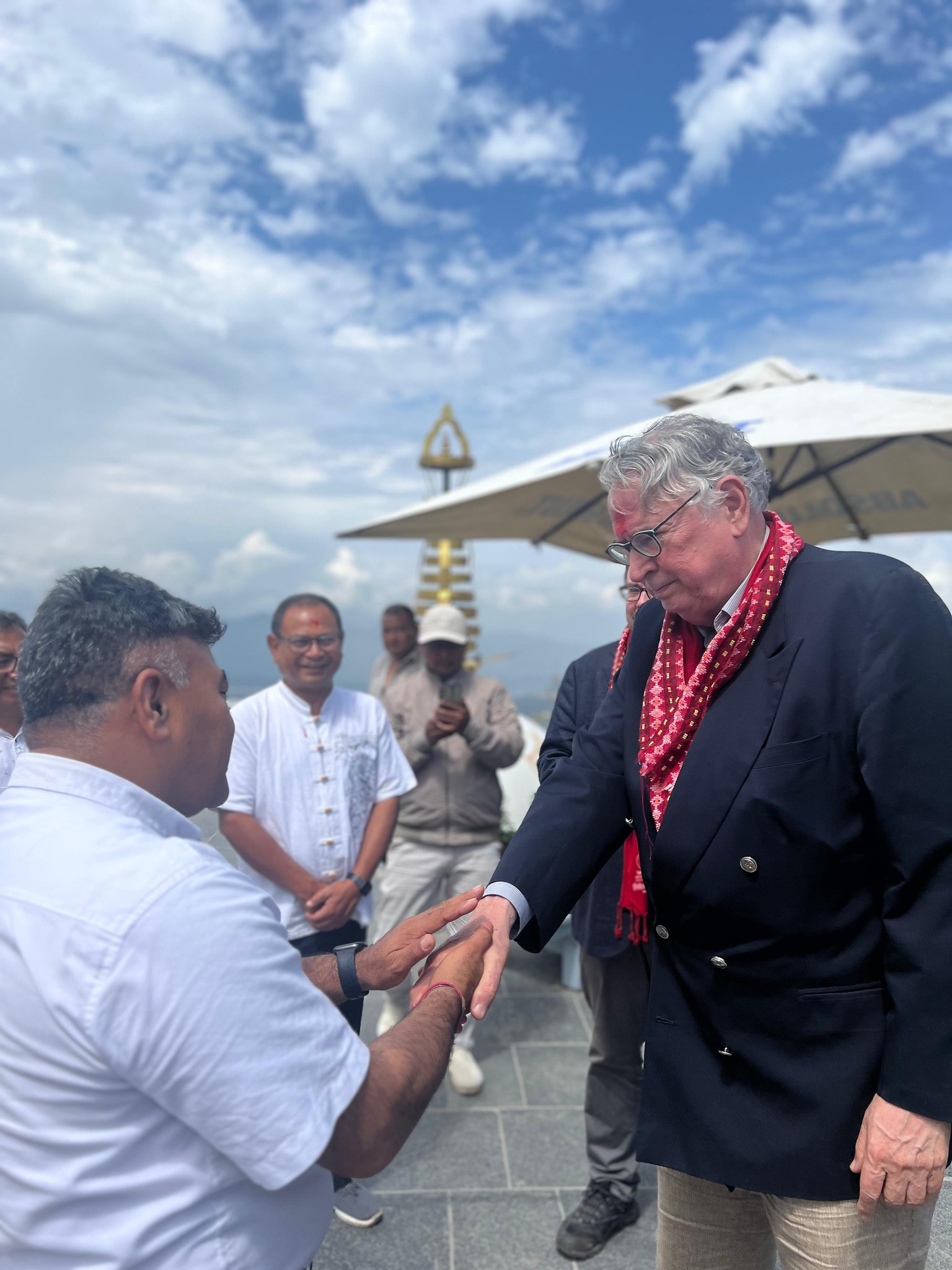
The German effort not only underscores the significance of decentralized environmental governance but also reflects a shift in international aid—from charity to partnership.
Both events, though different in scale and approach, offer a powerful narrative: climate diplomacy is no longer confined to speeches and promises. It is being rooted in soil, restored through pipes, and carried forward in the hands of students and villagers alike.
As the sun set on World Environment Day 2025, the contrast between the tree saplings taking root in Kathmandu and the repaired pipelines in Dhulikhel illustrated a shared vision—one where environmental protection transcends borders and becomes a collective commitment.
In a time of mounting ecological stress, such gestures—however localized—serve as beacons of collaborative resolve. The environment, after all, is our most honest mirror, reflecting not just what we have done, but what we are still capable of repairing.
India In Nepal Germany in Nepal
![From Kathmandu to the World: How Excel Students Are Winning Big [Admission Open]](https://www.nepalaaja.com/img/70194/medium/excel-college-info-eng-nep-2342.jpg)
